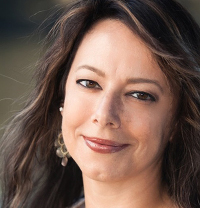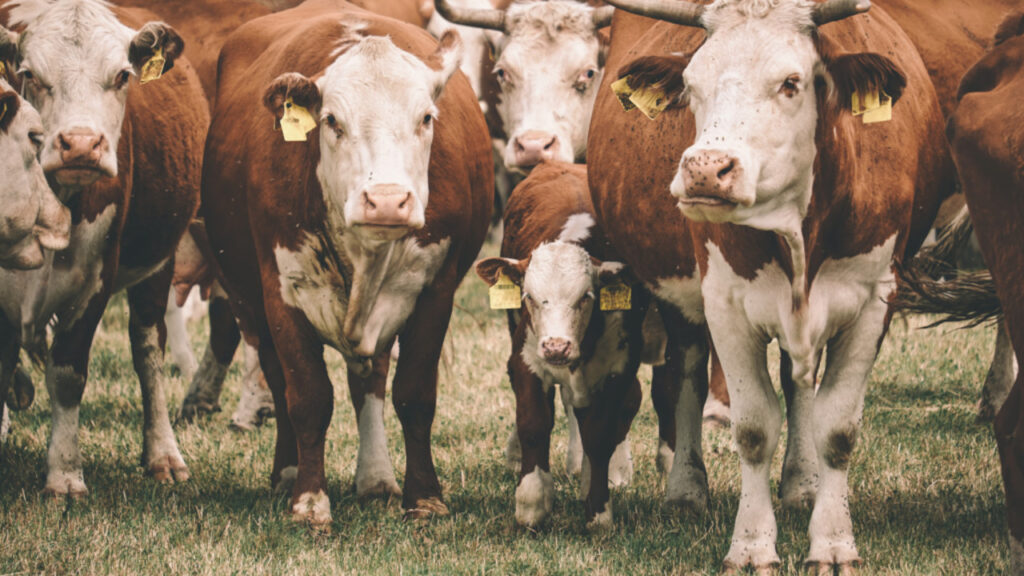
Jennifer Molidor is on a mission. Through her research and advocacy, she has always tried to highlight the incredible impacts of animal agriculture and what she calls “a clear biodiversity crisis.”
Her work is gaining traction, but it hasn’t always been this way. While there is now a broad field of scientists working on the biodiversity impacts of agriculture, she explained that as recent as “5 years ago it was really edgy and bold to be working on agriculture as a biodiversity issue.”
This has led to an awakening in the media of recent years, and it’s clear that these researchers are driving a broader global awareness of our biodiversity challenges. For Jennifer though, it’s still a “story that I don’t think gets told enough.”
“It often sounds like an abstract niche of people who care about different types of plants, but we need to talk about what it means for ecosystems and the health of our planet…we need to talk about it in terms that resonate for people.”
A key reason Jennifer suspects is its complexity. Not only is it harder to pinpoint singular data points like a total amount of emissions to reduce, but even with the metrics we have now, “it’s hard to think of a single metric where we can say we have a handle on this biodiversity crisis.”
“When it comes to solving the challenge, The biodiversity crisis is very complicated and the solutions are going to need systemic change. There isn’t an easy win.”
Jennifer doesn’t believe that this is a simple matter of systematic vs personal change. She described this as a “false binary.” However she also pointed to recent polling that indicated that even among people who wanted to support conservation efforts, only about half of them wanted to make personal sacrifices to shift toward plant based diets. This is why she believes “we need a synthesis of individual and systemic change.”
However, for many people and organisations, spreading the message of personal change is incredibly difficult. For example, she highlighted that “the biggest consumers of Beef are white men in their 50s and 60s.” This is a demographic that few food advocates have a long term track record. This is partly due to a bigger, global advertising challenge.
“It hasn’t always been this way, it has been pushed on us. Meat and Dairy have hardcore been pushed on us.”
Here, Jennifer described how many of our core challenges facing the world’s food systems have their roots in colonisation. Quite simply, she believes that “we have to move away from a colonial model of industrial food production.” This is a model that she explains, that began with ranching.
“The way that Western colonialism transpired is through ranching. The way we eliminated native lifestyles here is through livestock. The idea that cattle production can save the West is a myth we need to challenge, because many of the solutions can be found in Indigenous farming practices.”
Jennifer Mollidor
In this way, Jennifer’s approach to food is one that sees farmers, and the food they grow as an interconnected entity. This is something she hopes the food movement can learn from, so that we can better “listen to the food ways and stories of people who were here before us.”
To this, she believes that “the key to healing the broken food system is including the people who have been harmed by it.”
Currently, Jennifer is trying to bridge a key gap in our current understanding of the impacts of animal agriculture; the overall impact of livestock on wildlife.
“There will be a few reports about the impacts of livestock on land use, and another on water use, but I really want to tie it all together.”
This is also part of the disconnect she described before, as Jennifer believes that “people don’t properly understand how our wildlife is disconnected from our agriculture.” As an example she anecdotally described how there is “no standard” for labelling beef products in America.

“Even when it comes to labelling something ‘grass-fed’ or ‘regenerative,’ there is no standard, it’s just an ethereal movement. Part of it is traditionally understood and part of it is not defined at all.”
We also discussed the specific situation in the United States. Interestingly, she described that the great irony of the national dietary guidelines, is that “we don’t even produce enough of those fruits and vegetables to serve every adult in America.”
This is a key example of food injustice, which she believes could be shifted dramatically within the Biden administration, if there was a key focus on government support for animal agriculture, especially in regards to financial bailouts.
“Meat is so highly subsidised in the United States… if we shifted those subsidies towards fruits and vegetables for human consumption, we would go a long way.”
From a scientific point of view, she admits that it can be hard to understand just how long it might take us. It is hard enough just to establish a universally accepted measure of impact.
“The current emissions numbers we have for animal agriculture and its impact are outdated. We’re starting to go with 16%, but I think it’s probably higher. When it comes to species extinction though, it’s clear we are in a crisis, and it’s hard to think of a single data point that says we’re not.”
To get out of this crisis, Jennifer says “we’re going to have to re-envision our food system.” In our conversation, she encouraged me to “challenge what is taken for granted and what is normal.”
“We need to think about interconnections. Less binaries. We need to move beyond a climate vs biodiversity debate, and think more about pathways to food justice, food security, better food and better health.”
